Recent Posts
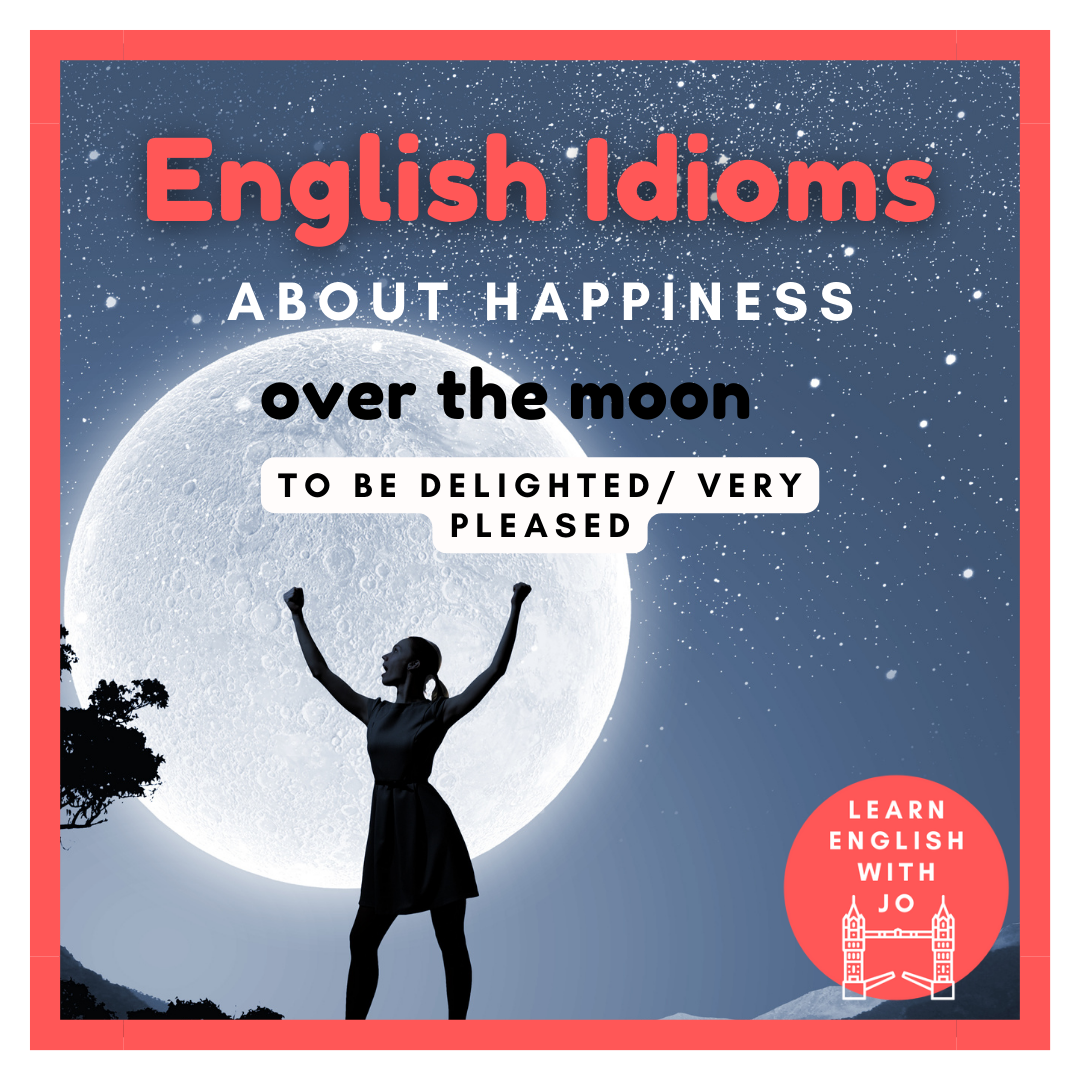
Learn English idioms for talking about happiness
Today we’re going to explore five English idioms for talking about happiness, looking at their meanings and how they can be used in sentences.
Learning English is not just about mastering grammar and vocabulary, but it's also about understanding the nuances of expressions that English speakers use in daily conversations. Next time you’re feeling particularly happy, try one of these!

Alternative ways to say ‘very' in spoken English
When it comes to expressing intensity or emphasising a point in English, the word ‘very’ often takes centre stage. However, using the same word repeatedly can make your speech seem a bit monotonous and less engaging. Exploring alternatives to ‘very’ isn’t just about diversifying your vocabulary but also about enhancing your communication skills and sounding more natural and comfortable in the language.

Learn 6 ways to ask somebody to wait in English
In today’s super fast-paced world, being able to ask someone to wait politely in English is an essential skill. Whether you're catching up with a friend, managing work responsibilities, or simply need a moment to gather your thoughts, using the right expressions can make a difference.
If you can’t immediately attend to somebody then simply abruptly saying ‘wait’ or ‘wait please’ can come across rather rude.
So, let’s look at some of the more polite ways you could ask somebody to wait in English.

Talking about disappointment in English as a second language.
In a speaking lesson this week, my student and I looked at an article in which the writer described experiencing a crushing disappointment. It’s a universal feeling that we all experience at some point in our lives. Whether it’s not getting the job we interviewed for, failing an exam or simply being let down by a friend at the last minute, the sense of disappointment can leave us feeling a bit deflated, at best.

Pumpkins, bunnies and sausages. Terms of affection for young children in English.
Within the English language there is a huge array of charming, cutesy terms and expressions that adults use to address young children. From peanut to munchkin, sweetheart to honey; let’s have a look at some of them.

Business English - learn phrasal verbs for problem solving at work.
Do you have to regularly speak English at work? Lots of my students are professionals who lack confidence in speaking English in the workplace.
Mastering phrasal verbs related to problem-solving can help you to navigate challenges at work and contribute to successful teamwork. In this blog post, we will explore key phrasal verbs commonly used in problem-solving scenarios and provide definitions and examples to help professionals like you, enhance your language skills.

English collocations with future
Are you ready to future-proof your English? Today, we're looking at collocations with the word ‘future,’ essential phrases that will make your English sound more natural and fluent.
Why learn collocations?
Studying common collocations is a valuable investment in your English learning journey. It goes beyond memorising individual words and fosters a deeper understanding of how words work together in the language. As you integrate collocations into your conversations, you'll find that your fluency and confidence improves, leading to more effective communication.

English idioms about water (with meanings and examples)
My students love learning new idioms, so today I’ve got five idioms related to water, including their meanings and example sentences.
Remember to make a note of any that you think might be useful in your life and if you’d like to book a conversation class with me to practice your spoken English then get in touch.
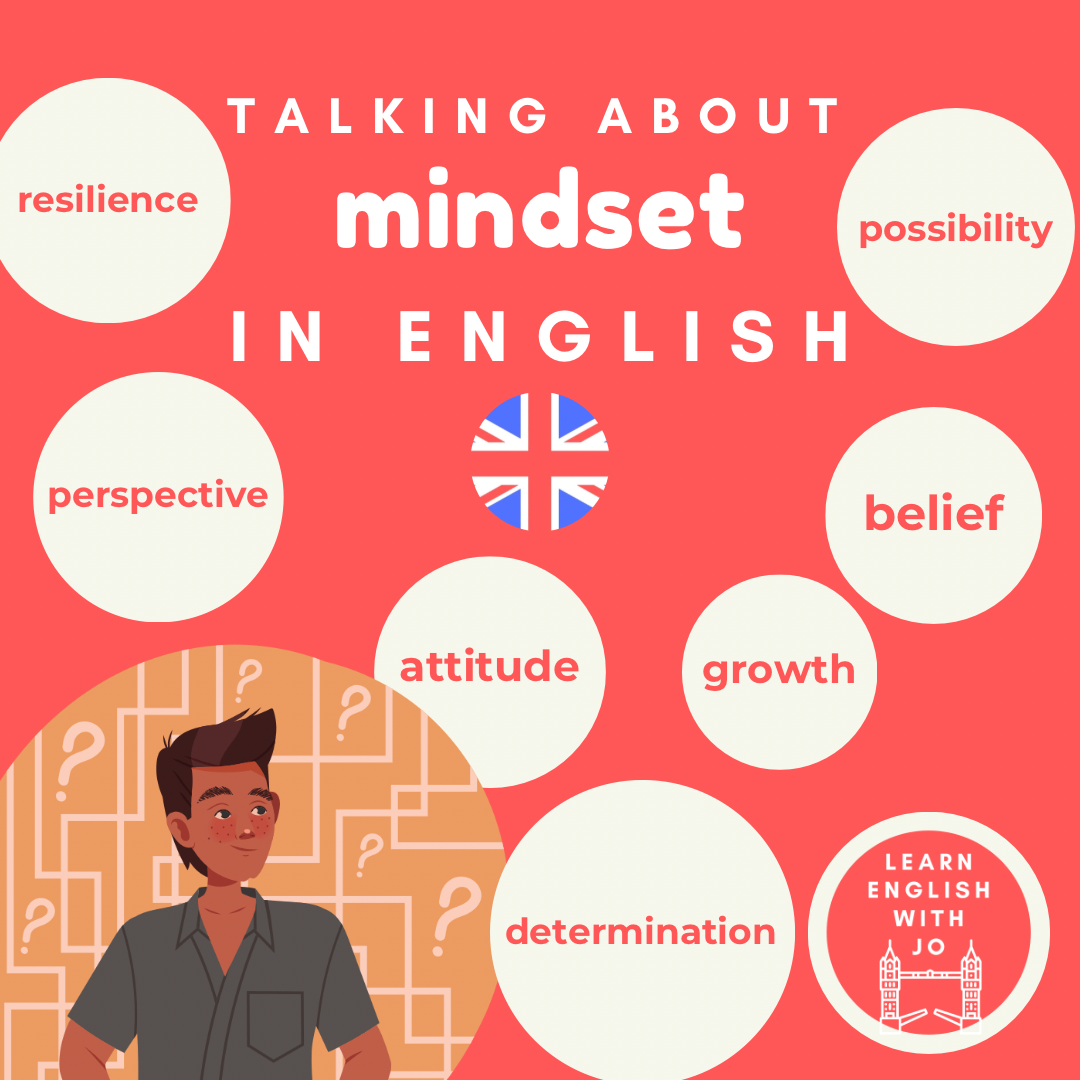
Talking about mindset when learning English as a second language
Embrace a growth mindset - One of the fundamental principles of successful language learning is having a growth mindset. Instead of viewing language proficiency as a fixed trait, people with a growth mindset believe that their abilities can be developed through determination, dedication, commitment and curiosity.
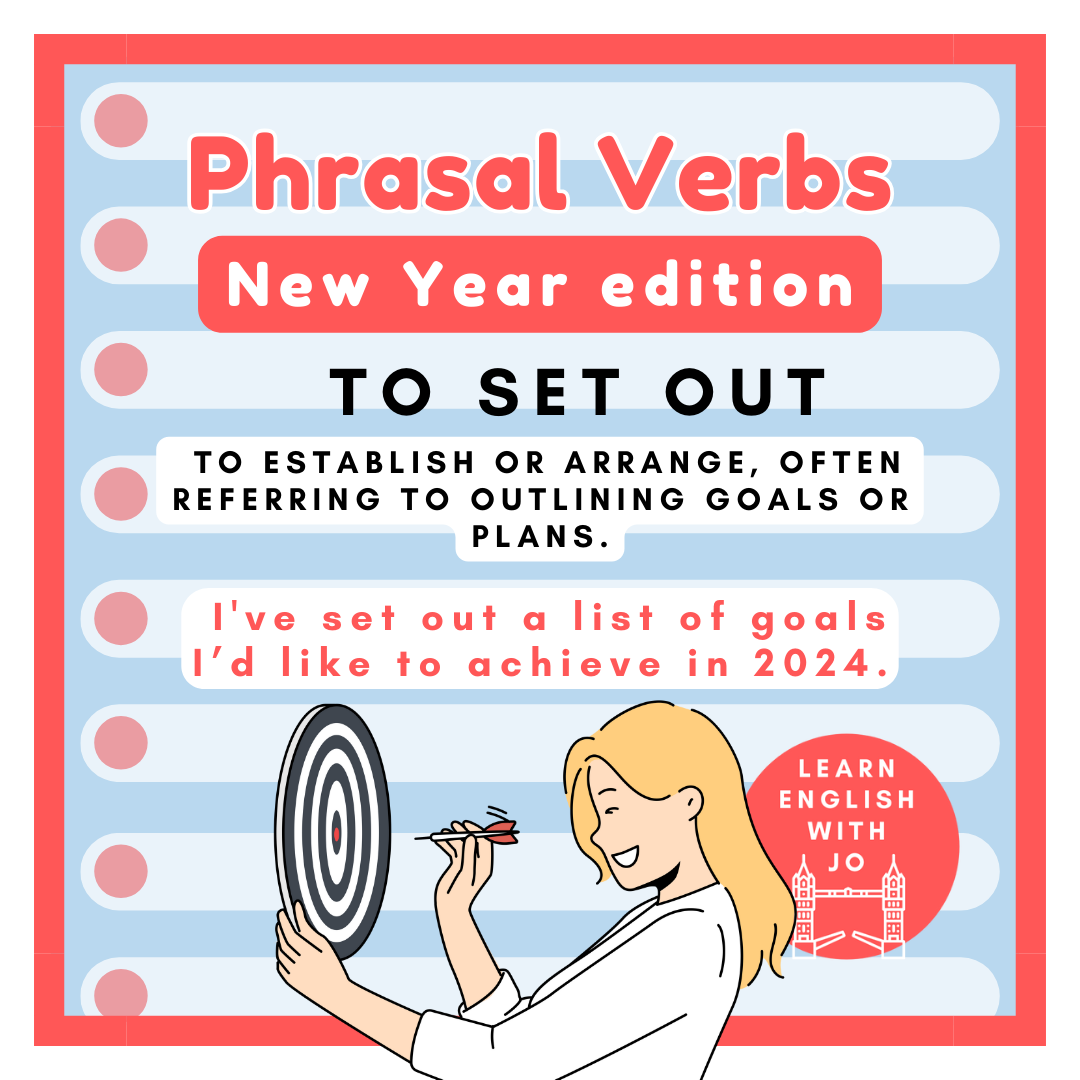
Goodbye 2023, hello 2024. English phrasal verbs for the end of the year.
As we say goodbye to 2023, it's time to reflect on the past 12 months and set the stage for the upcoming year. English phrasal verbs offer a dynamic way to express our experiences, achievements, and aspirations. In this post, we'll explore 10 phrasal verbs that assist us in talking about the year gone by and help us articulate our plans for the future.
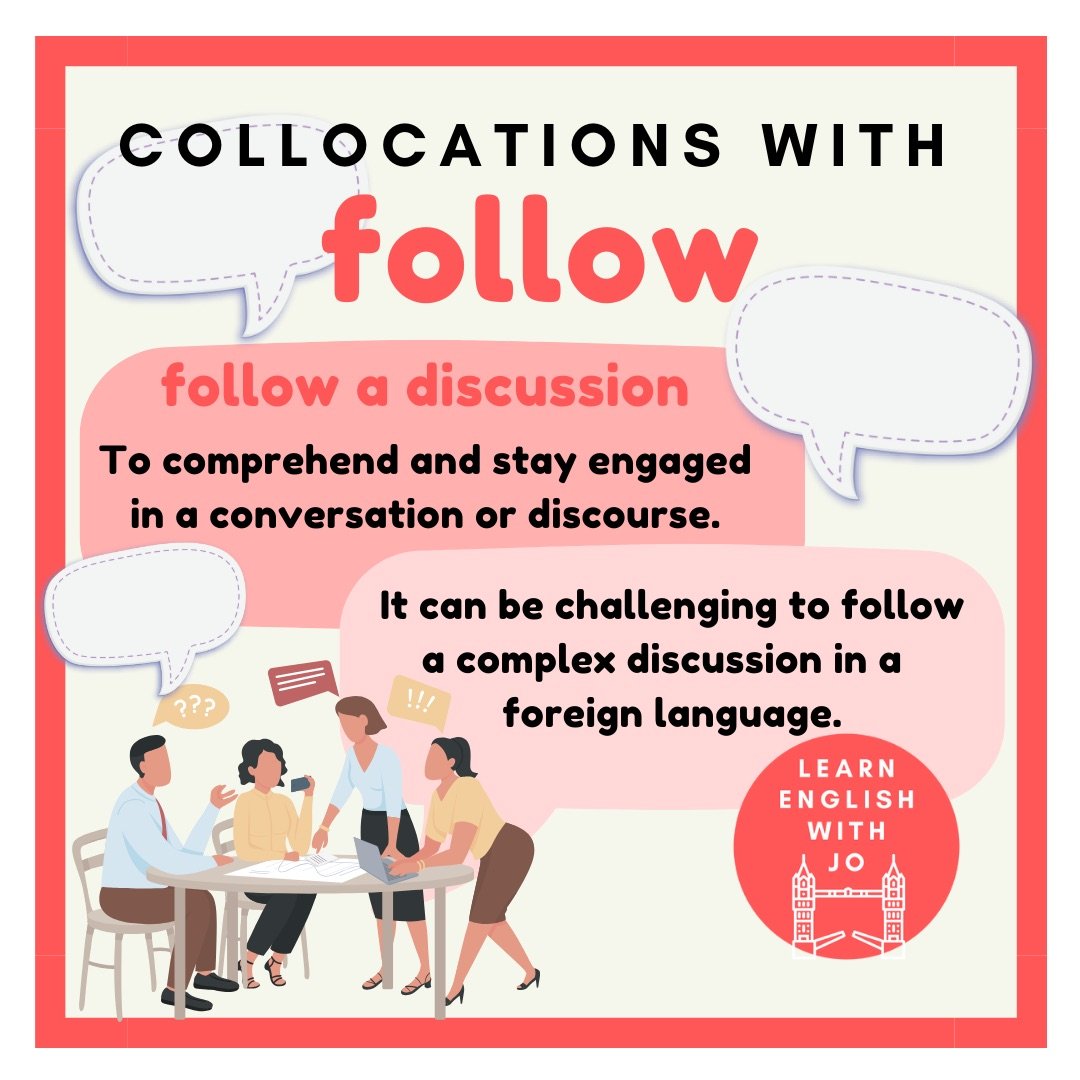
English collocations with follow.
This mini English lesson focuses on essential collocations with the word "follow." Collocations are a common way in which words regularly go together. It's like a partnership between words that often appear side by side or near each other. Learning collocations can help you speak English more fluently. If you're an ESL student looking to improve your English language skills then keep reading!
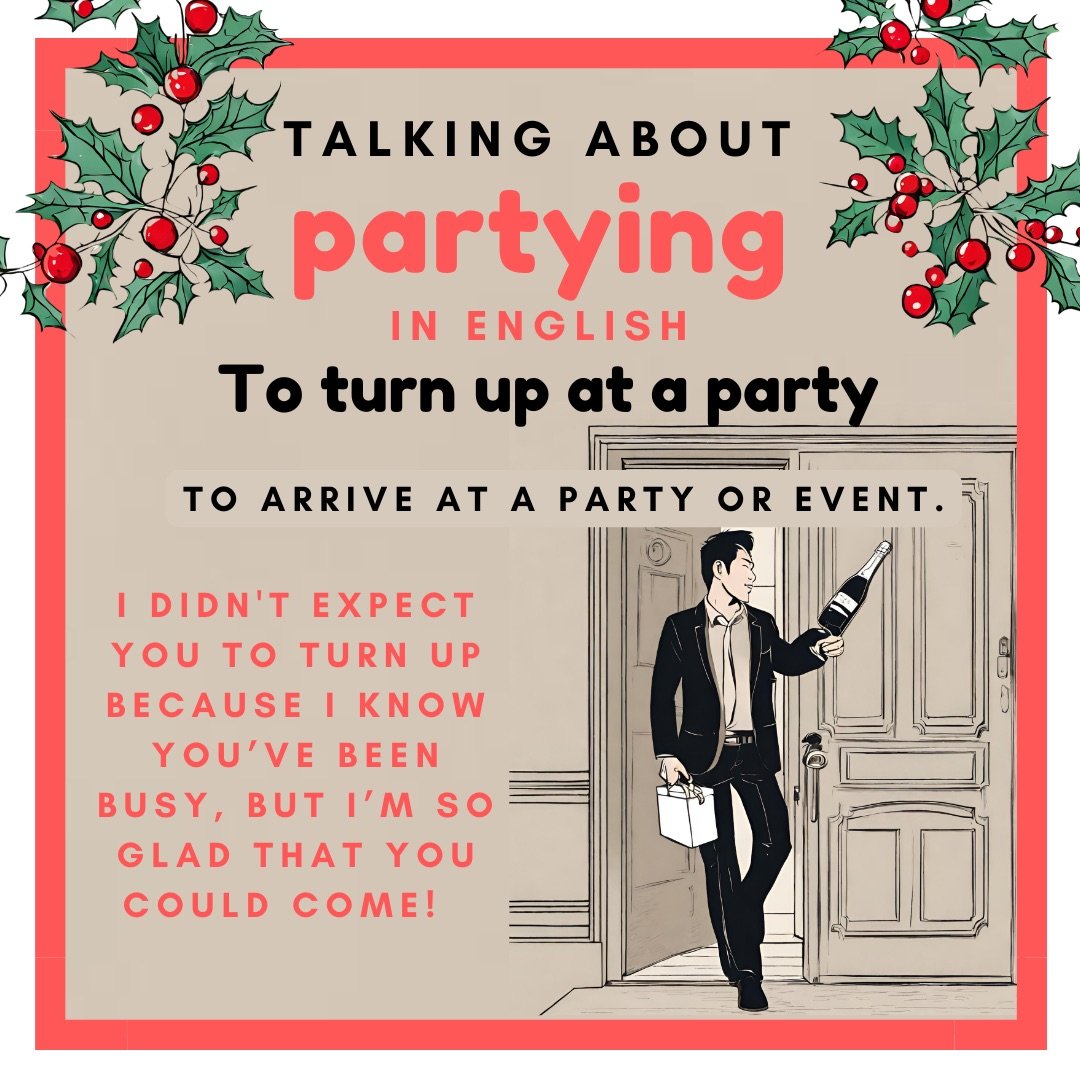
Talking about partying in English for ESL students.
It’s December and supposedly ‘party season’ when your social calendar should be packed full of festive fun, so today I’ve got a variety of English phrases and expressions for talking about parties; Summer parties, Christmas parties, kids’ parties, all parties! You can use these English phrases all year ‘round.

English phrasal verbs for talking about Christmas
It’s that time of year when people all over the UK are preparing for Christmas. If you're learning English as a second language and you are looking to sprinkle your English conversations with a touch of festive flair, you're in the right place! In this blog post, we'll explore and unwrap several Christmas-related phrasal verbs for talking about the holiday season.

English phrasal verbs with pick
In today’s English lesson, we're delving into the world of phrasal verbs with a focus on the versatile word ‘pick.’ Phrasal verbs, a combination of a verb and one or more prepositions or adverbs, often carry meanings that can be challenging to decipher. So, let’s pick apart the intricacies of various phrasal verbs associated with ‘pick’ and pick up some new English vocabulary .
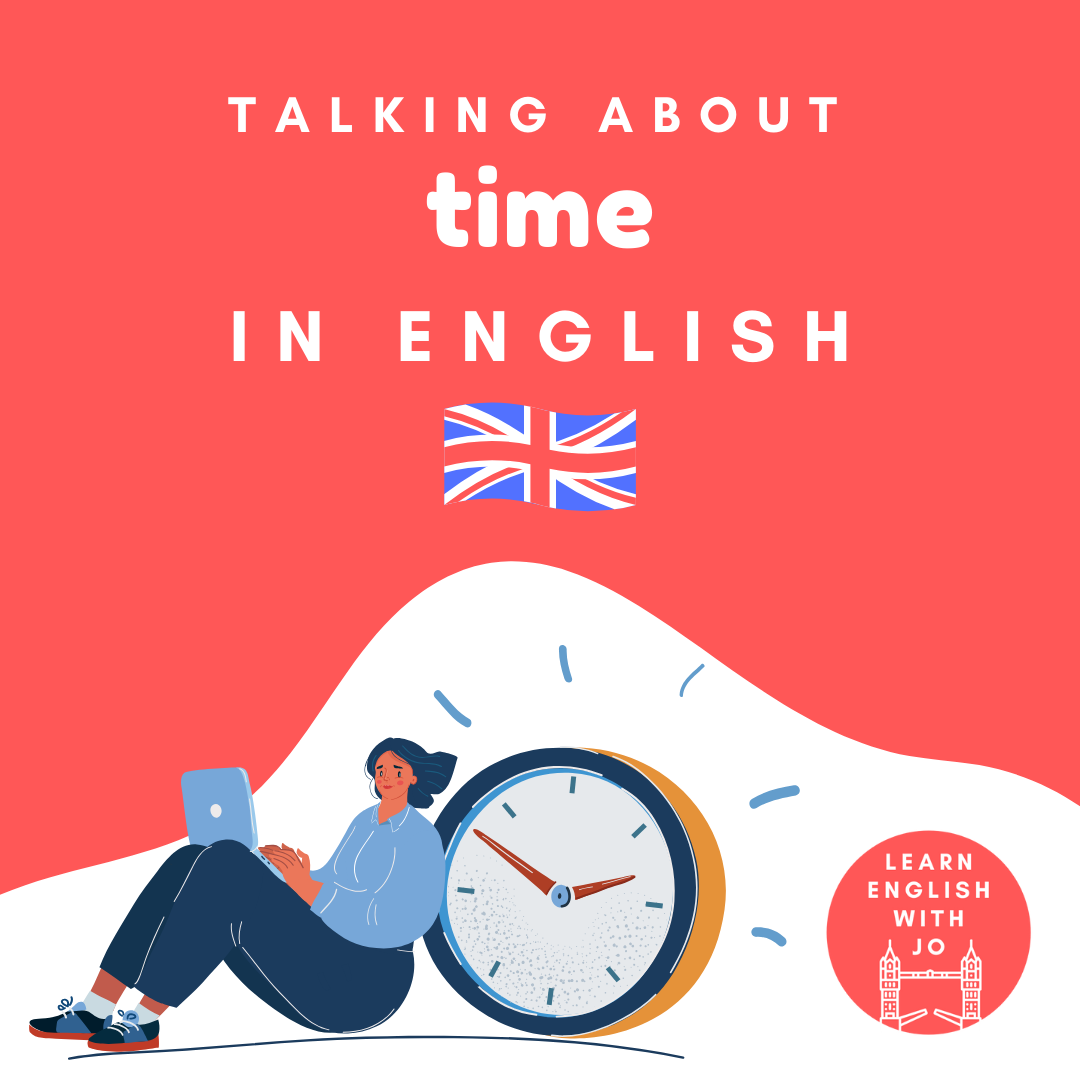
Talking about time in English - Essential Phrases for EFL Students.
Time is a universal concept, and mastering the vocabulary associated with it is crucial for effective communication in any language. For English students, understanding expressions related to time can greatly enhance your ability to express yourself in various situations. In this blog post, we'll explore and explain some common time-related phrases that you're likely to encounter in everyday conversations.

English idioms with cats
Lots of you will have heard of the idiom ‘It’s raining cats and dogs’ but did you know that it’s not actually used in English conversation very often these days? However, there are plenty of other feline related English idioms out there, so let’s explore some of them.

English idioms about time.
Today, we're going to look at a selection of idioms that you can use when you’re talking about time in English. These idioms provide insights into how we perceive and value time in various situations and will give you new ways to express yourself in English.

English Collocations with Lose
In English language, certain words often go together and form a fixed expression. These word combinations, known as collocations, have a particular meaning that is often different from the separate words. One such word that forms several interesting collocations is "lose." Let's explore some of these common collocations, their meanings, and examples of their usage
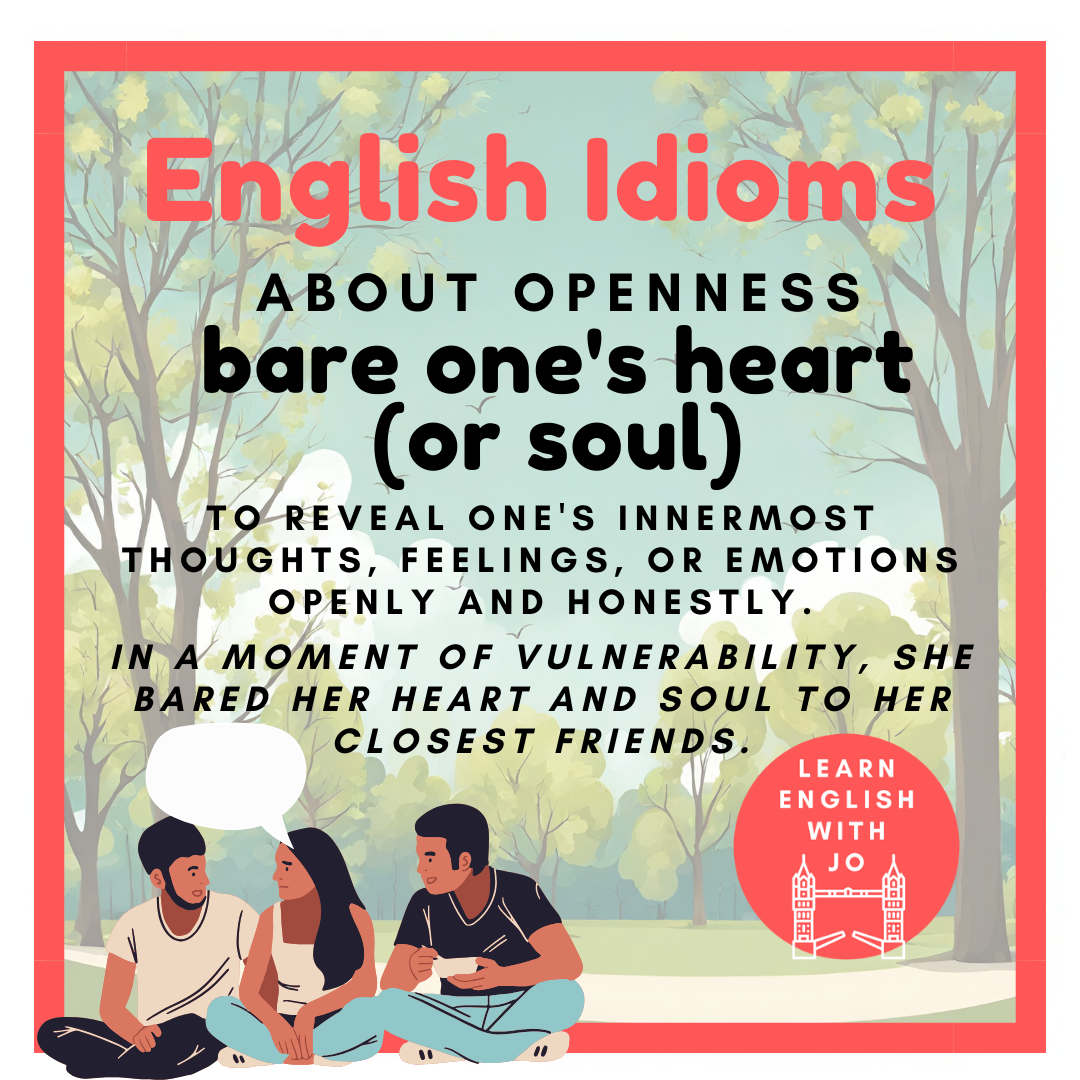
English Idioms about openness and sincerity.
In my English conversation classes this week, we’ve been talking about communication and the importance of openness, sincerity and authenticity in both professional and personal relationships. During our conversations we’ve explored some of the language that can be used to talk about open communication and dialogue. We tried out incorporating some of the following English idioms in our discussions.
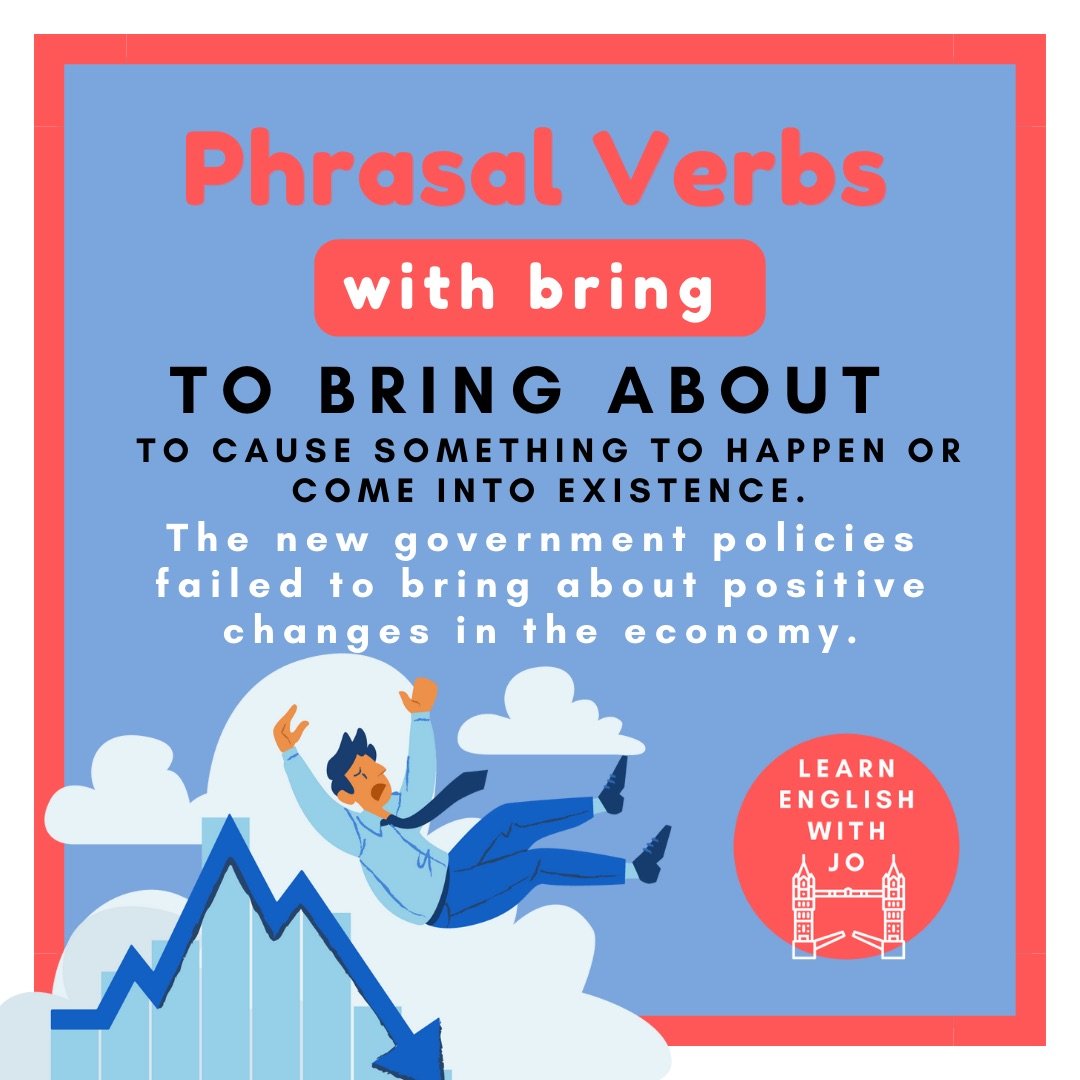
English phrasal verbs with bring.
Phrasal verbs are an integral part of the English language. They add depth and versatility to our conversations and writing. One commonly used verb in phrasal constructions is "bring." In this blog post, we will explore various phrasal verbs with 'bring,' providing definitions and examples to help you master this aspect of English grammar.
